Iran has smuggled increasingly sophisticated weapons to the Houthis in Yemen since at least 2009. By 2015, the Qods Force, the external operations arm of Iran’s Revolutionary Guards, were sending missile components for local assembly. The weapons – along with training and military advisors – helped transform the scrappy tribal militia into a well-armed and disciplined fighting force.
The Qods Force mainly used dhows, small fishing boats, to smuggle weapons components. The boats took routes via the Arabian Sea and Gulf of Aden as well as the Horn of Africa while trying to avoid interdictions by U.S. and partner forces. The Iranians “went to great lengths to provide some of their most effective weapons despite logistical headaches,” Farzin Nadimi, a senior fellow at The Washington Institute for Near East Policy, told The Iran Primer. He added that Iran provided weapons systems that did not require highly trained operators, which allowed the Houthis to field advanced weapons relatively quickly. The Houthis also amassed weapons seized from the Yemeni army, confiscated or contributed by other tribes and the black market. But Iran provided the most advanced weapons to Iran.
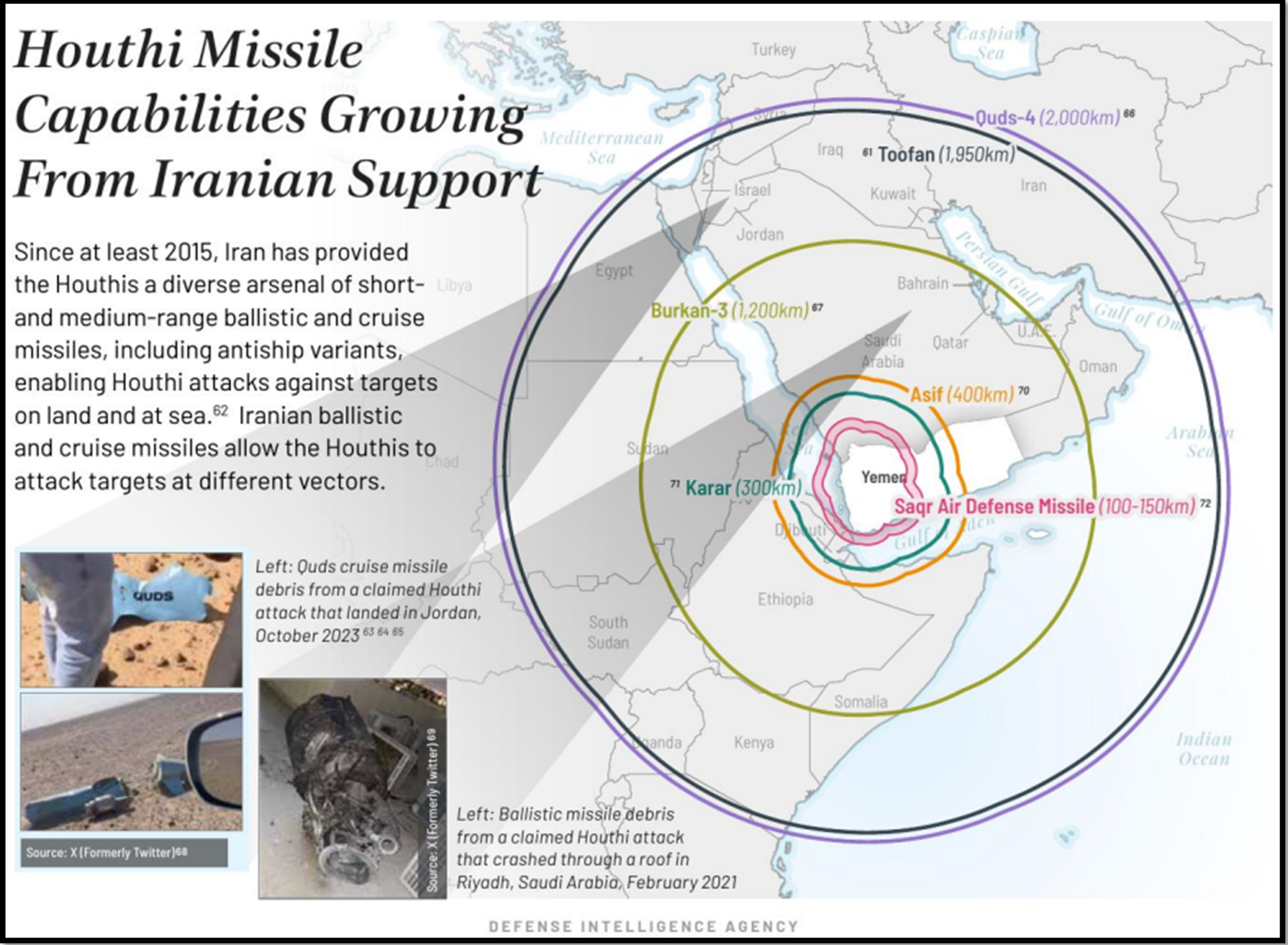
By late 2023, the Houthis were confident enough to attack U.S. warships in the Red Sea. The Houthis became the first group to fire anti-ship ballistic missiles, although most attacks on commercial ships and warships were unsuccessful. As of mid-2024, the Houthis had launched more than 100 attacks against Saudi Arabia, the United Arab Emirates, Israel and Yemeni adversaries as well as dozens of attacks on ships in the Red Sea and Gulf of Aden – all with weapons from Iran.
The Houthis possessed missiles with claimed ranges of 2,000 kilometers (1,200 miles) and aerial drones with claimed ranges of up to 2,500 kilometers (1,500 miles). They used a combination of components from Iran and commercially available parts or materials to manufacture the drones locally. On July 19, 2024, the Houthis launched an unprecedented strike on Tel Aviv using a suicide drone. The Samad-3 was modified so that it could fly an indirect route of some 2,600 miles (1,615) from Yemen and approach from the West. The following is a rundown of the Houthi arsenal.
Ballistic Missiles
Asif Anti-Ship Ballistic Missile
Iranian Equivalent: Khalij Fars
Unveiled in 2022
Range of up to 400 kilometers (250 miles)
Payload is 500 kilograms (1,100 pounds)
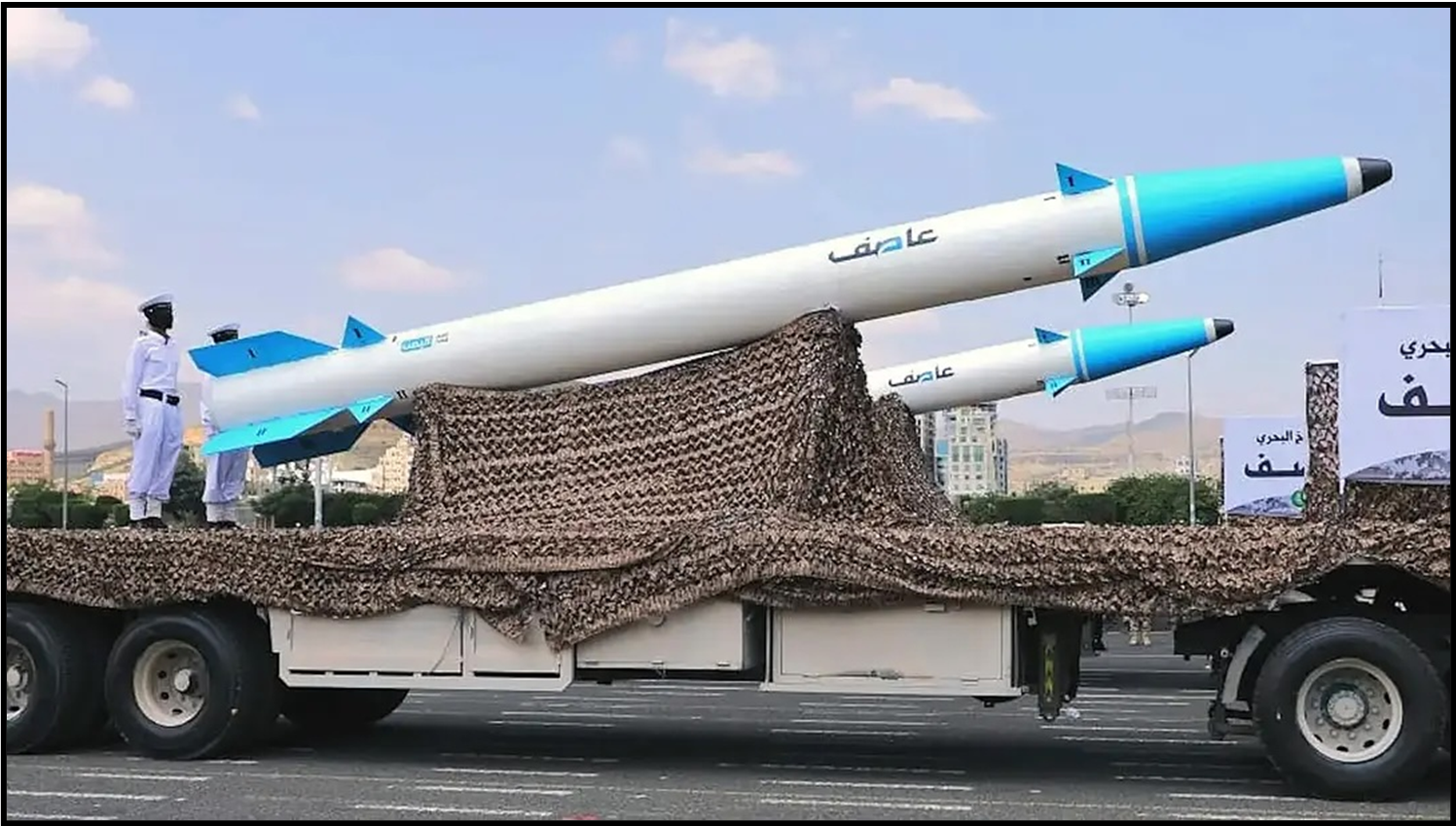
Iranian equivalent: Shahab-1
Unveiled in 2016
Range of up to 800 kilometers (500 miles)
Payload 500 kilograms (1,100 pounds)
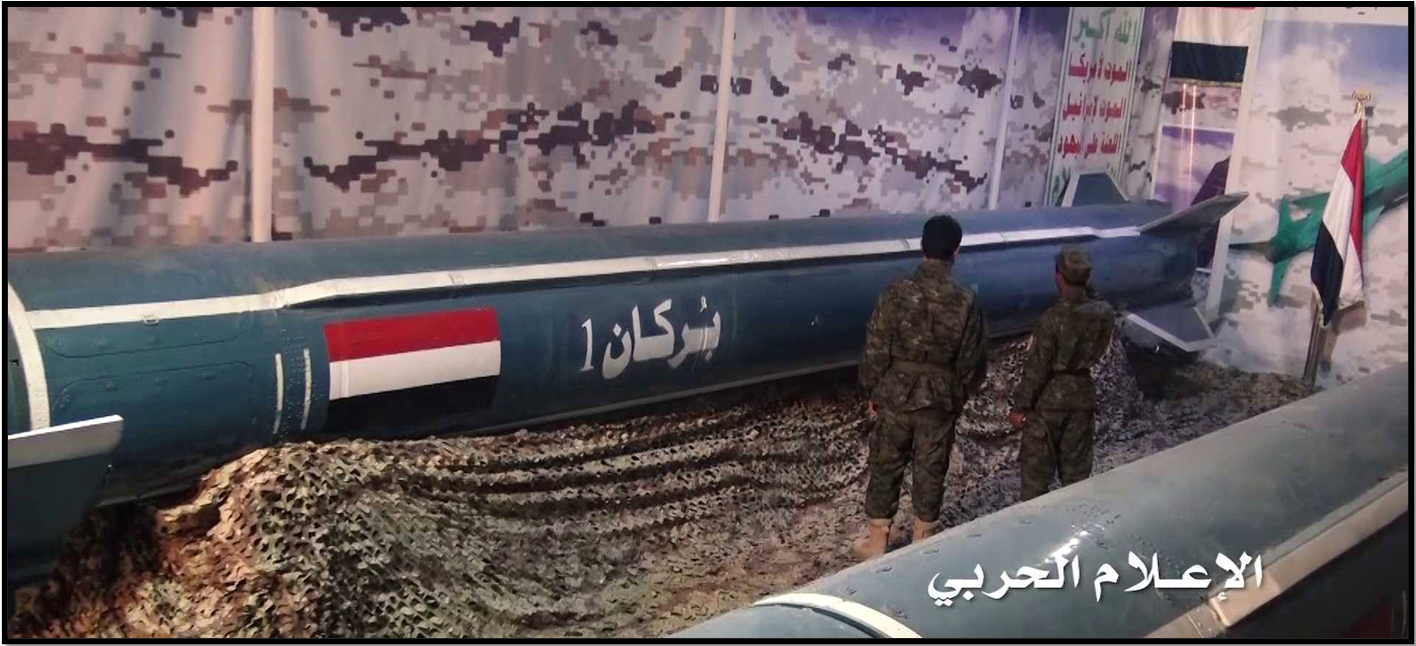
Iranian equivalent: Qiam-1
Unveiled in 2017
Range of up to 1,000 kilometers (620 miles)
Payload 250 kilograms (550 pounds)
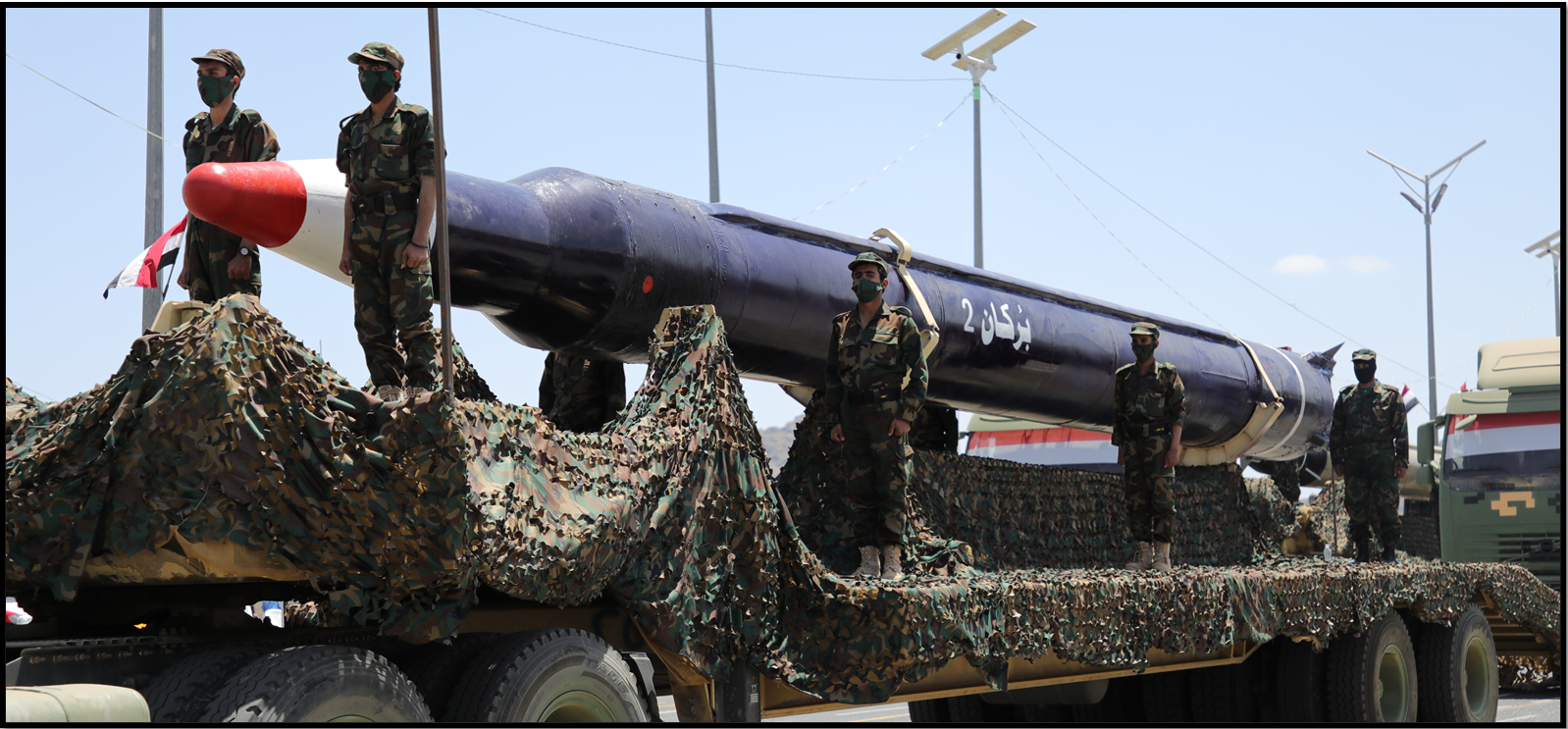
Burkan-3/Zulfiqar Ballistic Missile
Iranian Equivalent: Qiam/Rezvan
Unveiled in 2019
Range of up to 1,200 kilometers (745 miles)
Payload is 250 kilograms (550 pounds)
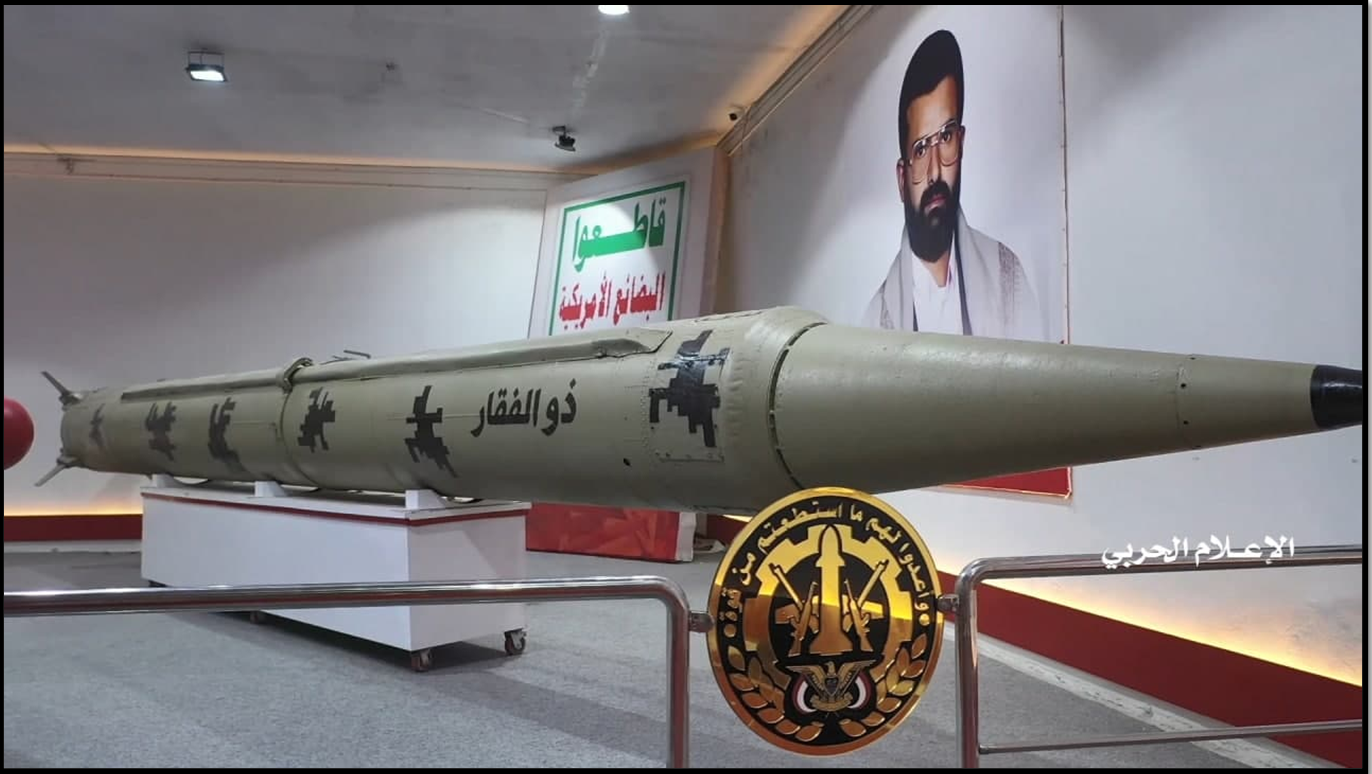
Iranian Equivalent: Kheibar Shekan
Unveiled in September 2022
Range of up to 1,450 kilometers (900 miles)
Payload is 500 kilograms (1,100 pounds)
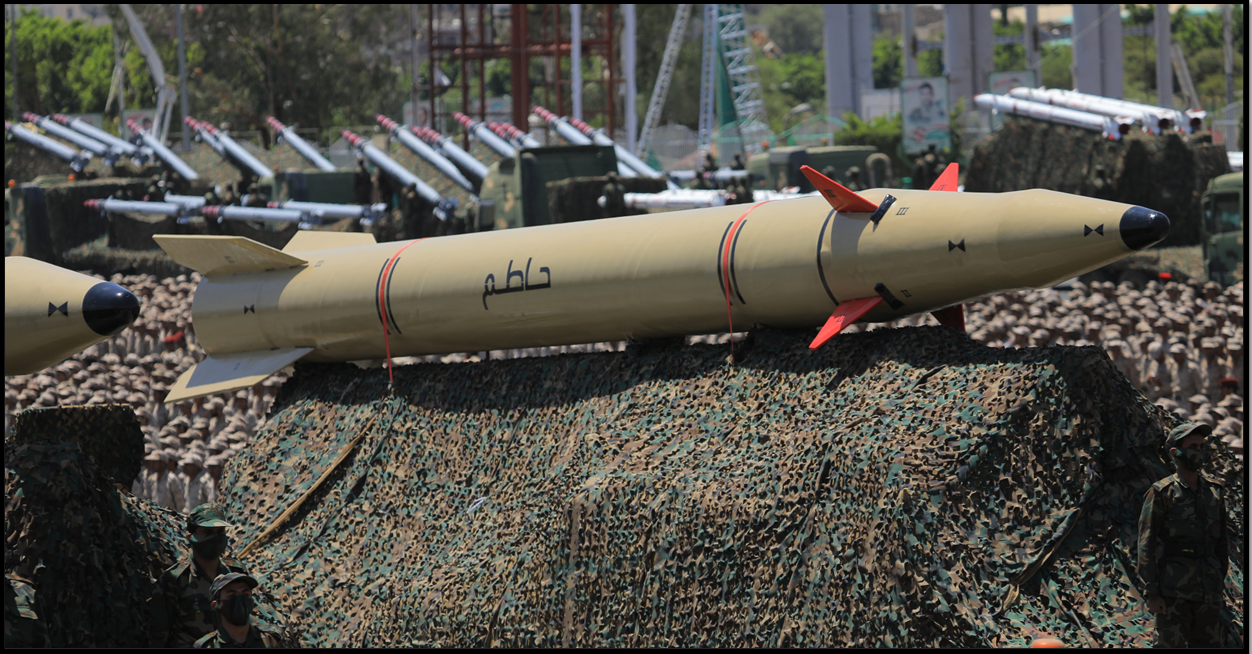
Iranian Equivalent: Kheibar Shekan variant
Unveiled in September 2024
Range unknown
Payload unknown
Iranian Equivalent: Fateh-110
Unveiled in 2022
Range of up to 300 kilometers (185 miles)
Payload is 500 kilograms (1,100 pounds)
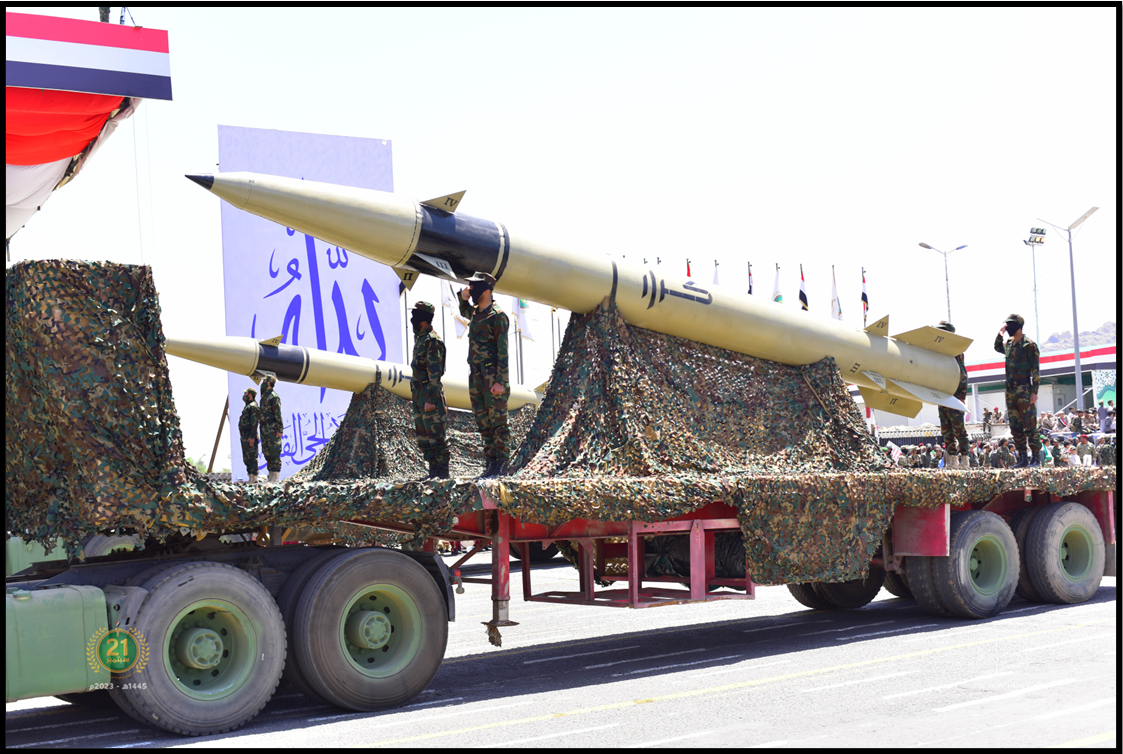
Mohit Anti-ship Ballistic Missile
Iranian Equivalent: Ghadir
Unveiled in 2022
Range of up to 300 kilometers (185 miles) for the Ghadir
Payload is 165 kilograms (360 pounds) for the Ghadir
Iranian Equivalent: Zoheir
Unveiled in 2023
Range of up to 500 kilometers (310 miles)
Payload (unknown)
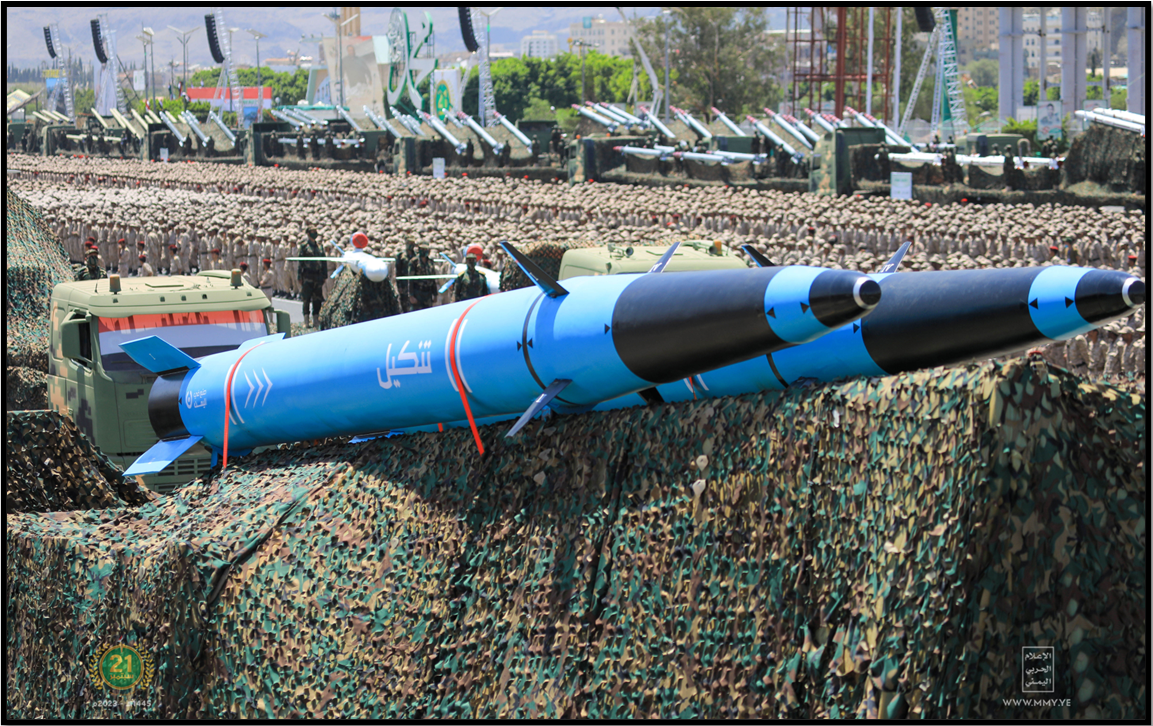
Iranian Equivalent: Shahab-3
Unveiled in September 2023
Range of up to 1,950 kilometers (1,200 miles)
Payload is 800 kilograms (1,760 pounds)
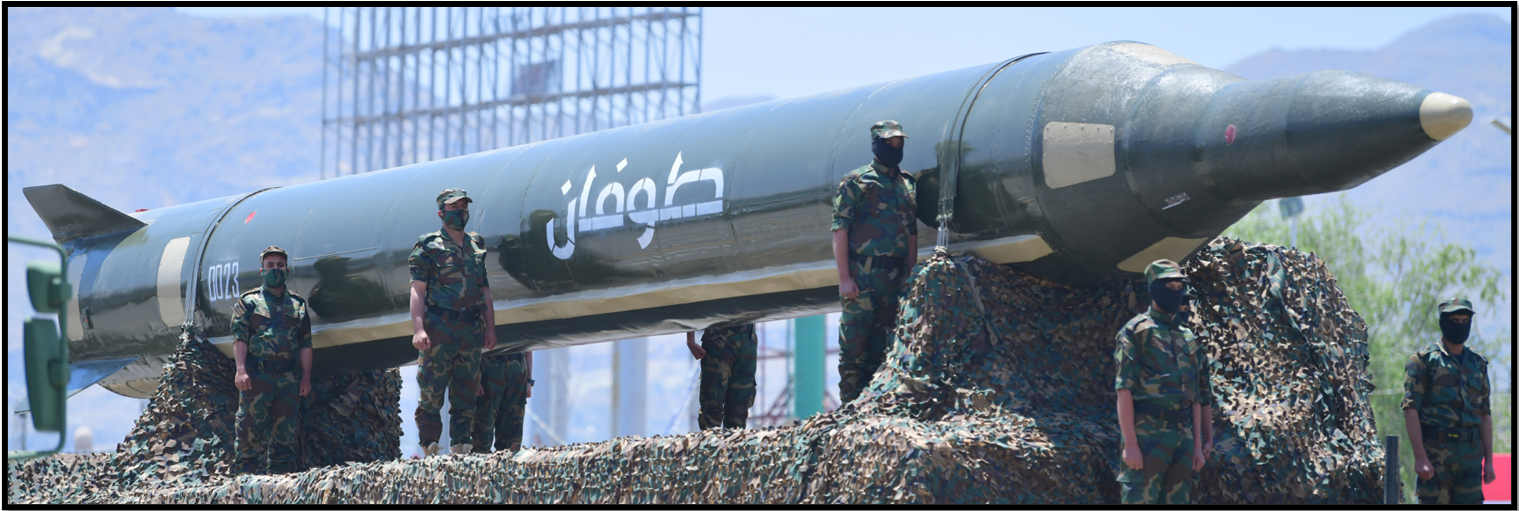
Cruise Missiles
Al Mandab-1 Anti-Ship Cruise Missile
Chinese Equivalent: C-801
Seized from Yemeni Army
Range of up to 40 kilometers (25 miles)
Payload is 165 kilograms (365 pounds)
Iranian Equivalent: Project 351/Paveh
Unveiled in 2019
Range of up to 2,000 kilometers (1,240 miles)
Payload (unknown)
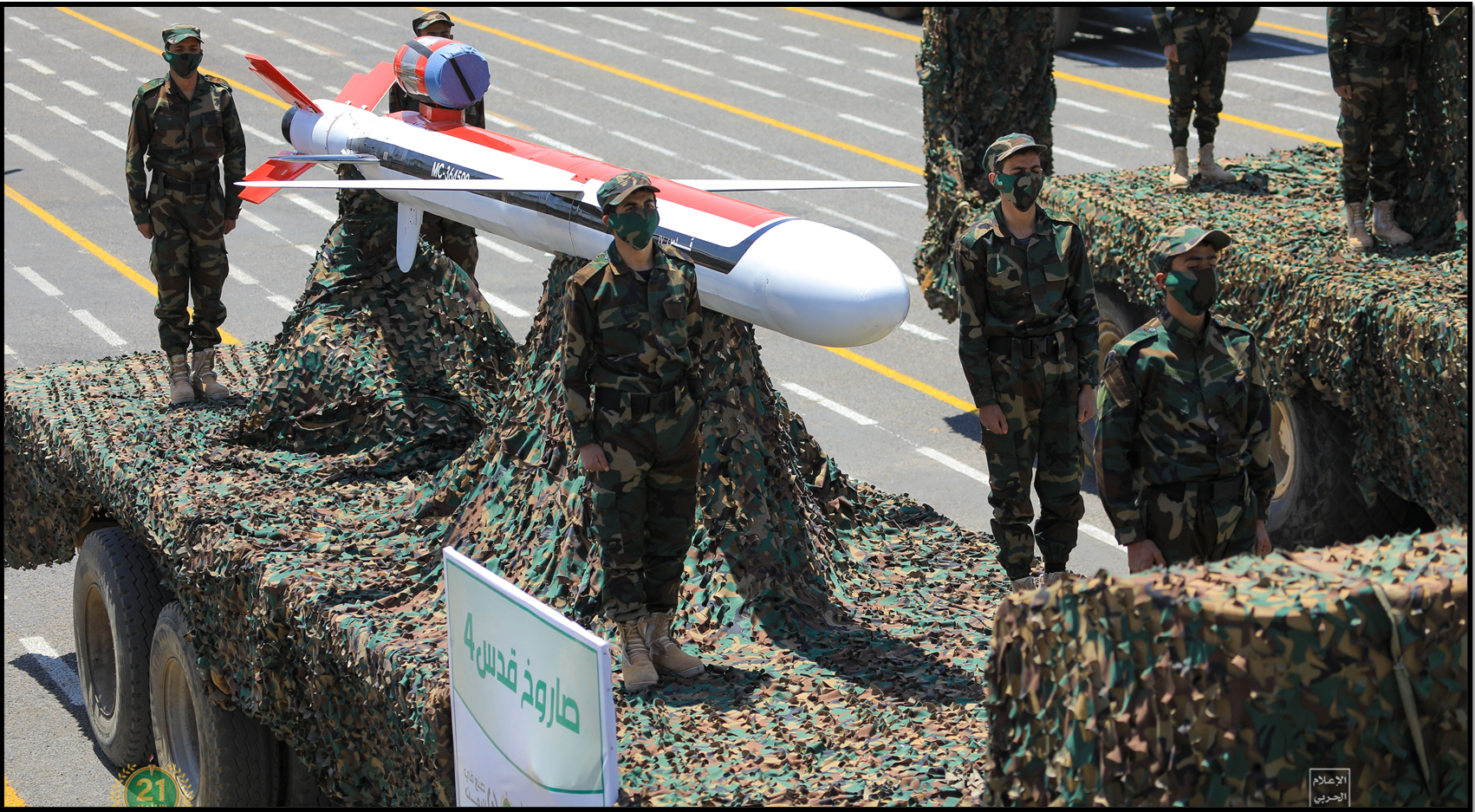
Rubezh Anti-Ship Cruise Missile
Russian Equivalent: P-21/P-22
Seized from Yemeni Army
Range of up to 80 kilometers (50 miles)
Payload unknown
Sayyad Anti-Ship Cruise Missile
Iranian Equivalent: Ghadir
Unveiled (unknown)
Range of up to 300 kilometers (185 miles)
Payload is 200 kilograms (440 pounds)
Attack Drones
Iranian Equivalent: Ababil-T
Unveiled 2019
Mission can be combat (suicide)
Flight distance up to 200 kilometers (124 miles)
Weapons systems could include up to 45 kilograms (99 pounds) of explosives
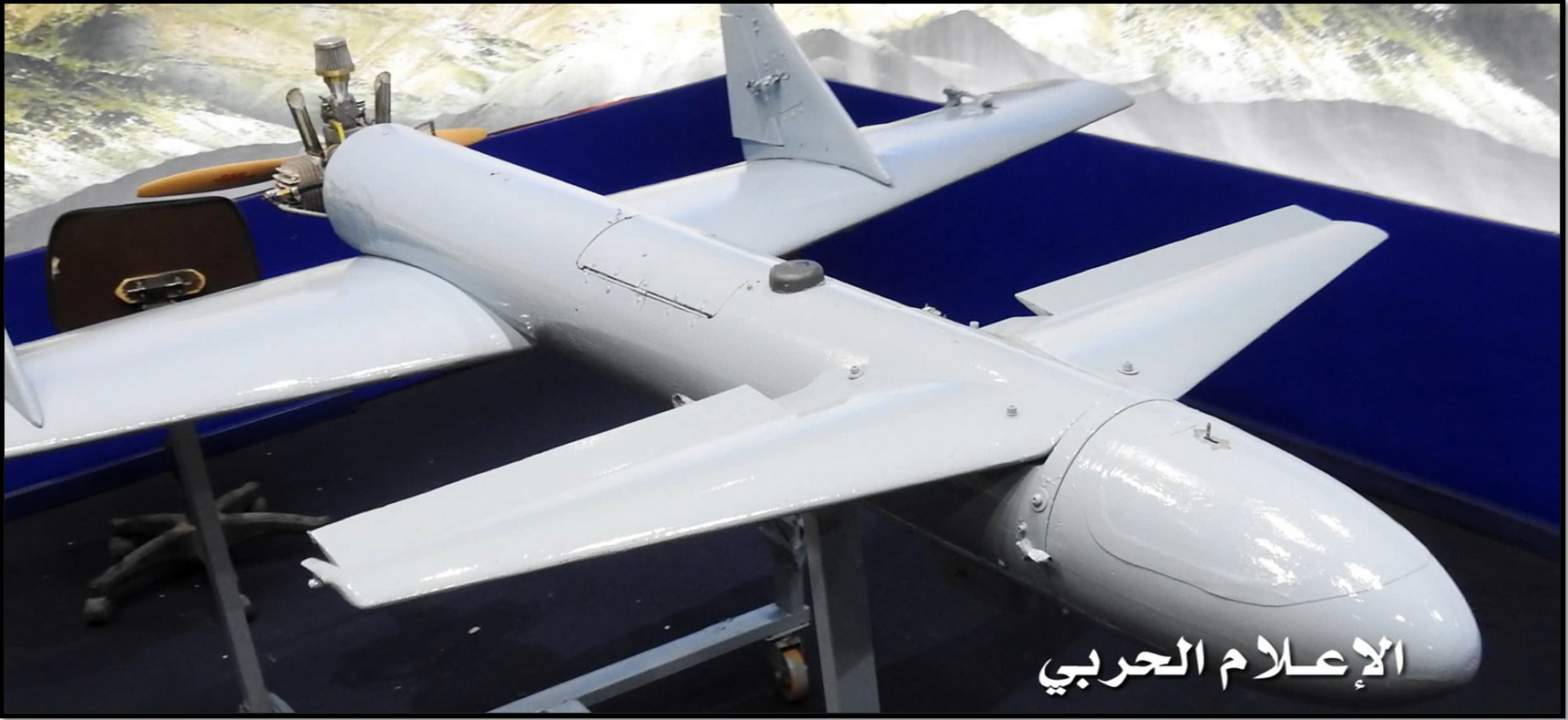
Iranian Equivalent: Ababil-T
Unveiled 2019
Mission can be combat (suicide)
Flight distance up to 200 kilometers (124 miles)
Weapons systems could include up to 30 kilograms (66 pounds) or 45 kilograms (99 pounds) of explosives
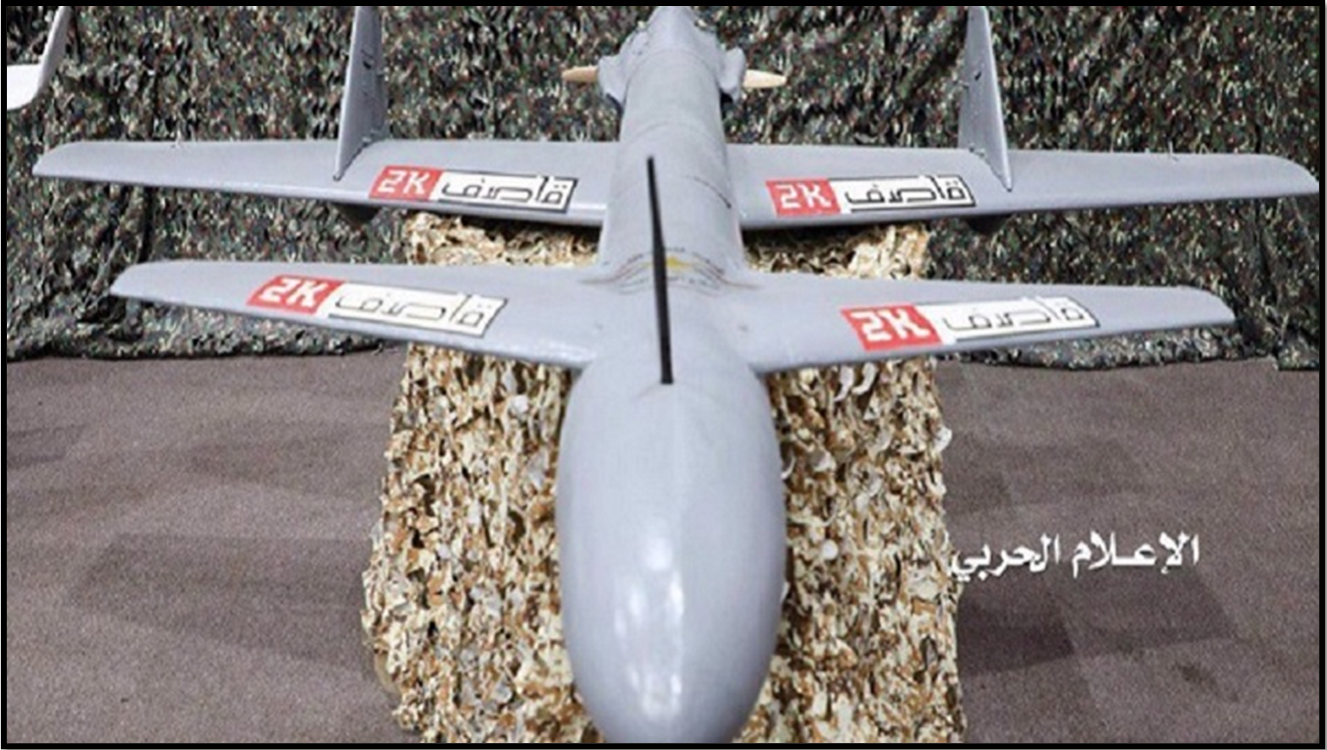
Iranian Equivalent: N/A
Unveiled in 2019
Mission can be combat (suicide)
Flight distance up to 1,500 kilometers (930 miles)
Weapons systems could include up to 18 kilograms (40 pounds) kilograms of explosives
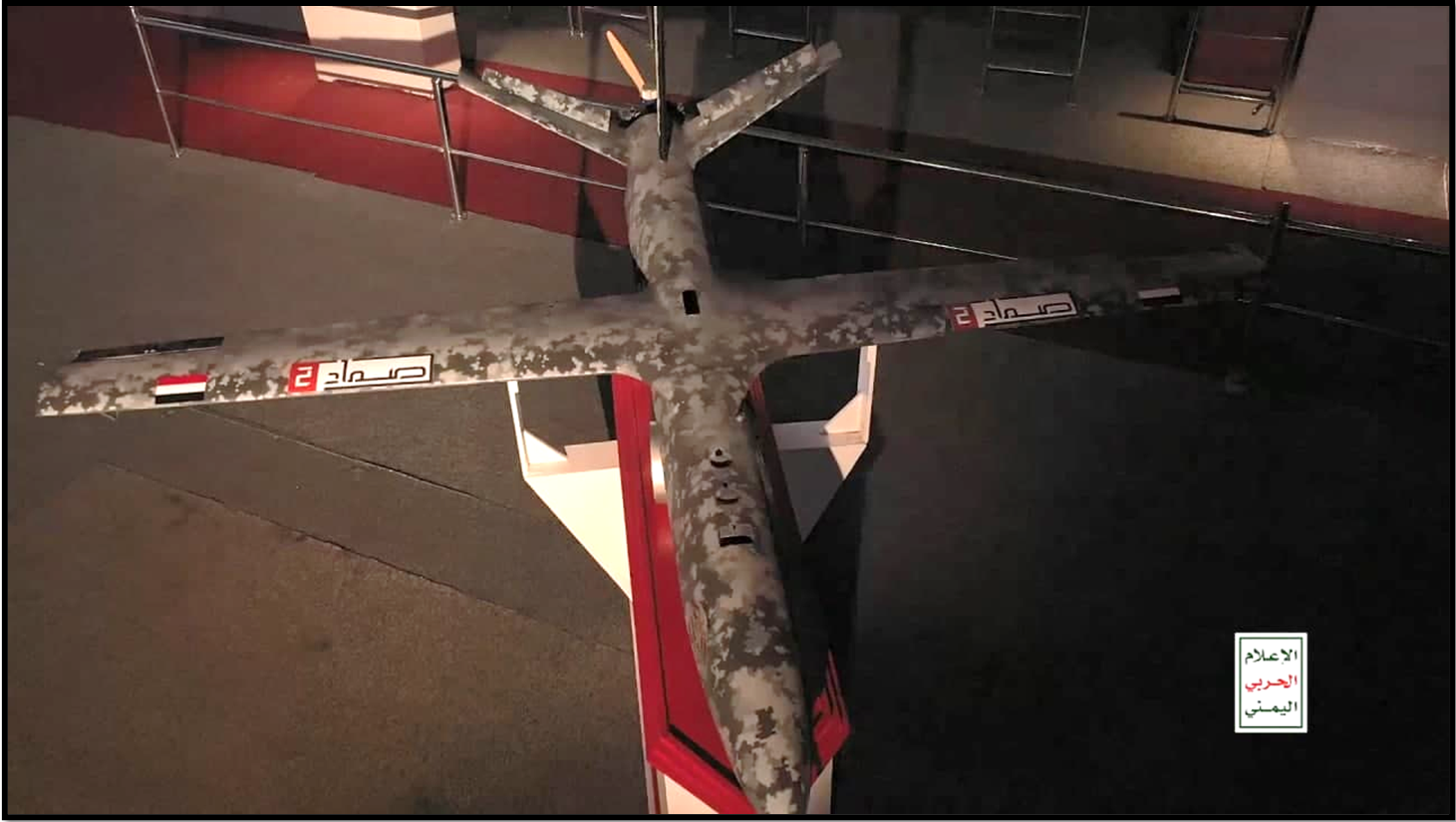
Iranian Equivalent: N/A
Unveiled in 2019
Mission can be combat (suicide)
Flight distance up to 1,800 kilometers (1,120 miles)
Weapons systems could include up to 18 kilograms (40 pounds) of explosives

Iranian Equivalent: N/A
Unveiled in 2021
Mission can be combat
Flight distance up to 2,500 kilometers (1,550 miles)
Weapons systems could include up to 45 kilograms (99 pounds) of explosives or unguided projectiles
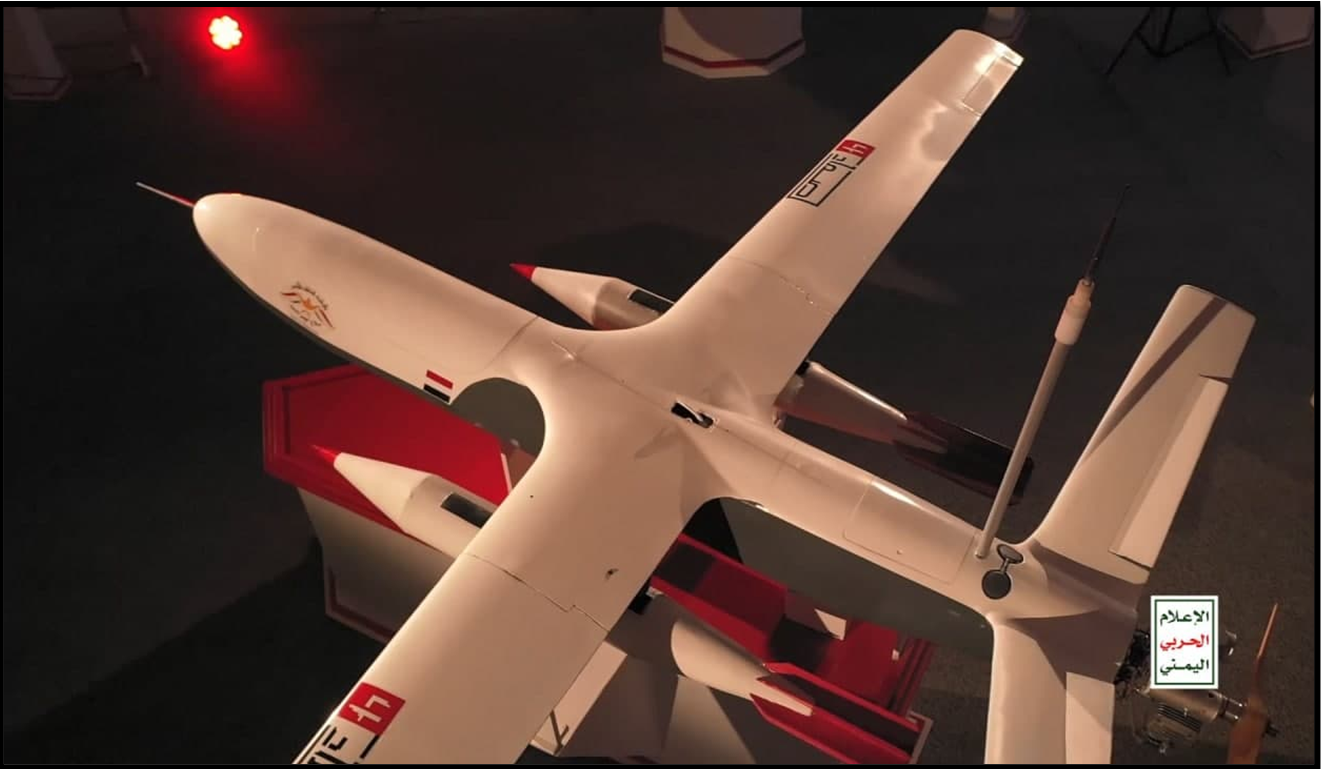
Iranian Equivalent: Shahed-131
Unveiled 2023
Mission can be combat (suicide)
Flight distance up to 900 kilometers (560 miles)
Weapons systems could include up to 20 kilograms (44 pounds) of explosives
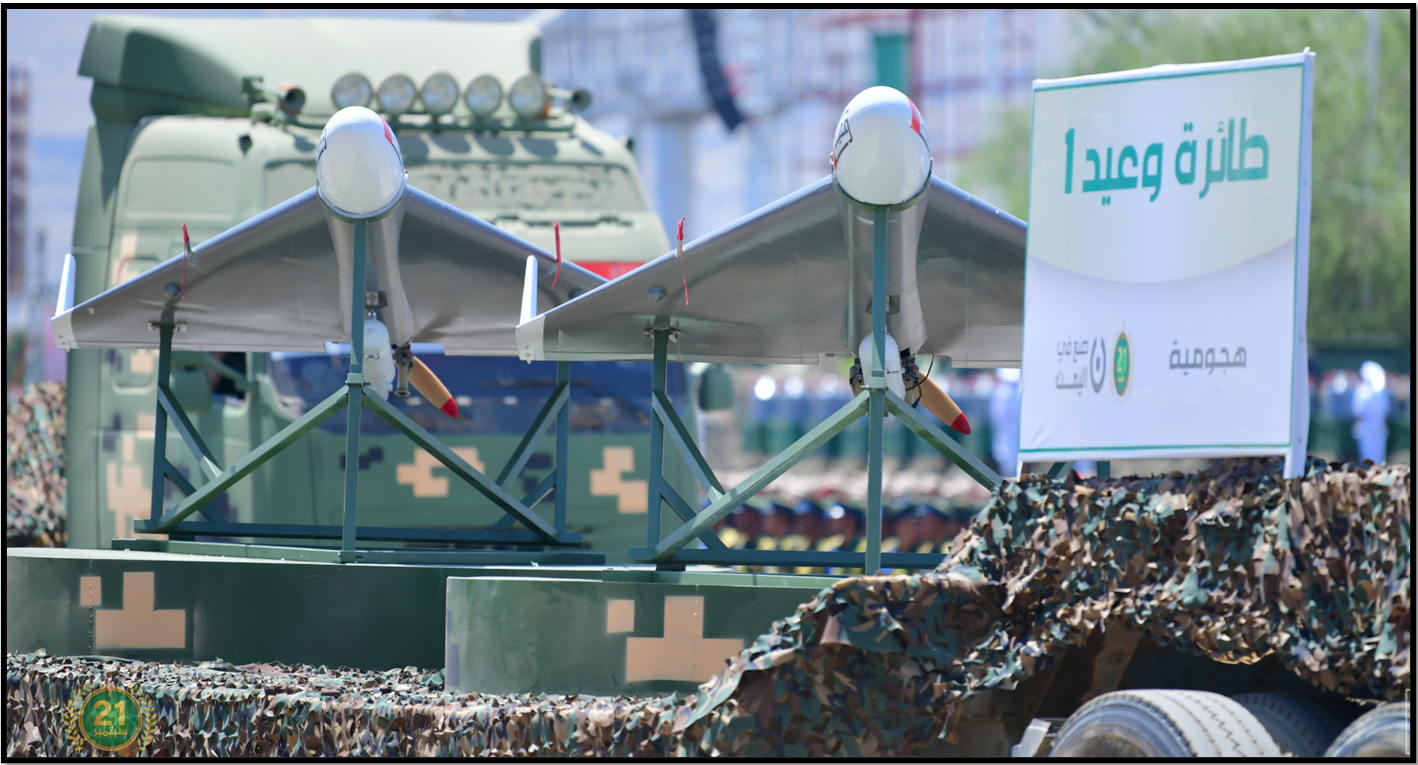
Iranian Equivalent: Shahed-136
Unveiled in March 2021
Mission can be combat (suicide)
Flight distance up to 2,500 kilometers (1,550 miles)
Weapons systems could include up to 50 kilograms (110 pounds) of explosives
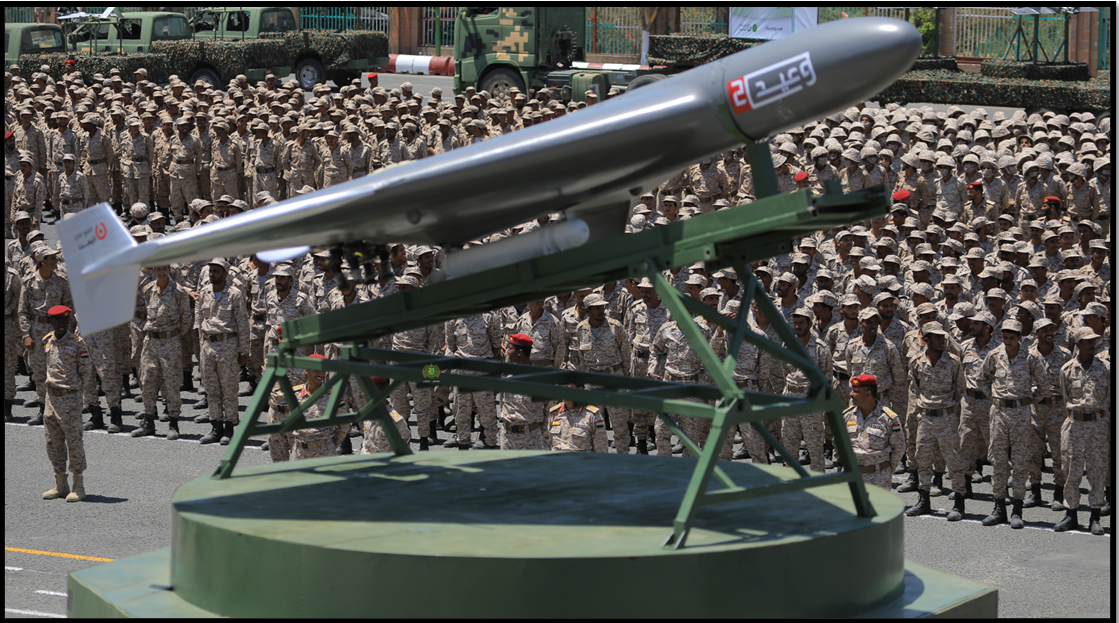
Related Material:
